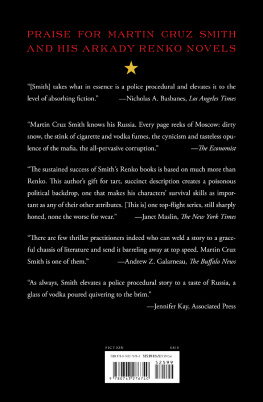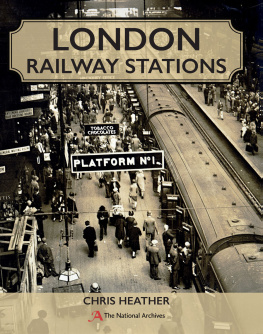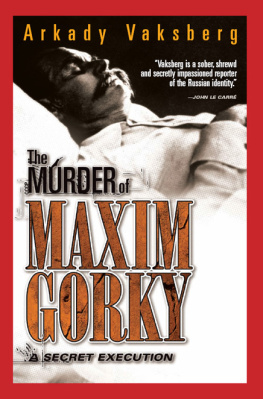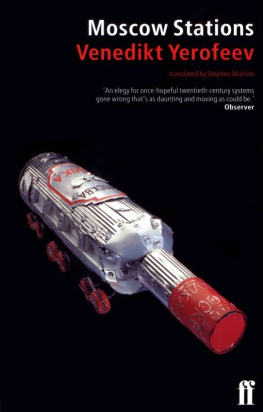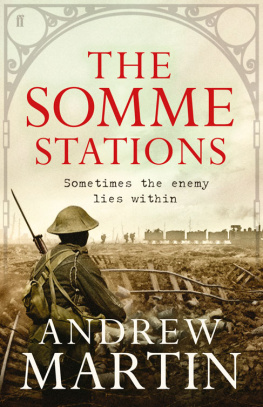
ALSO BY MARTIN CRUZ SMITH
Stalins Ghost
Wolves Eat Dogs
December 6
Rose
Havana Bay
Red Square
Polar Star
Stallion Gate
Gorky Park
Nightwing
Canto for a Gypsy
Gypsy in Amber
The Indians Won


| Simon & Schuster
1230 Avenue of the Americas
New York, NY 10020
www.SimonandSchuster.com |
This book is a work of fiction. Names, characters, places, and incidents either are products of the authors imagination or are used fictitiously. Any resemblance to actual events or locales or persons, living or dead, is entirely coincidental.
Copyright 2010 by Titanic Productions
All rights reserved, including the right to reproduce this book or portions thereof in any form whatsoever. For information address Simon & Schuster Subsidiary Rights Department, 1230 Avenue of the Americas, New York, NY 10020.
First Simon & Schuster hardcover edition August 2010
SIMON & SCHUSTER and colophon are registered trademarks of
Simon & Schuster, Inc.
For information about special discounts for bulk purchases, please
contact Simon & Schuster Special Sales at 1-866-506-1949 or business@simonandschuster.com.
The Simon & Schuster Speakers Bureau can bring authors to your live event. For more information or to book an event, contact the Simon & Schuster Speakers Bureau at 1-866-248-3049 or visit our website at www.simonspeakers.com.
Designed by Nancy Singer
Manufactured in the United States of America
10 9 8 7 6 5 4 3 2 1
Library of Congress Cataloging-in-Publication Data
Smith, Martin Cruz.
Three stations : an Arkady Renko novel / Martin Cruz Smith.
1st Simon & Schuster hardcover ed.
p. cm.
1. Renko, Arkady (Fictitious character)Fiction. 2. PoliceRussia
(Federation)MoscowFiction. 3. Moscow (Russia)Fiction.
4. KidnappingFiction. I. Title.
PS3569.M5377T57 2010
813'.54dc22 2010019996
ISBN 978-0-7432-7674-0
ISBN 978-1-4391-9992-3 (ebook)
FOR EM
MORE THAN EVER

Contents
1

The summer night swam by. Villages, ripening fields, derelict churches flowed and mixed with Mayas dreams.
She tried to stay awake but sometimes her eyelids had their way. Sometimes the girl dreamt of the trains first-class passengers tucked away asleep in their compartments.
Hard class had no compartments. Hard class was a dormitory coach where a few lamps were still lit and snoring, muffled sex, body odor and domestic quarrels were shared by all. Some passengers had been on the train for days and the fatigue of close quarters had set in. A round-the-clock card game among oil riggers soured and turned to resentment and accusations. A Gypsy went from berth to berth hawking the same shawls in a whisper. University students traveling on the cheap were deep in the realm of their headphones. A priest brushed cake crumbs from his beard. Most of the passengers were as nondescript as boiled cabbage. An inebriated soldier wandered up and down the corridor.
Still Maya preferred the rough sociability of hard class to traveling first class. Here she fit in. She was fifteen years old, a stick figure in torn jeans and a bomber jacket the texture of cardboard, her hair dyed a fiery red. One canvas bag held her earthly possessions, the other hid her baby girl of three weeks, tightly swaddled and lulled by the rocking of the train. The last thing Maya needed was to be trapped in a compartment under the scrutiny of snobs. Not that she could have afforded first class anyway.
After all, a train was just a communal apartment on rails, Maya decided. She was used to that. Most of the men stripped to warm-up pants, undershirts and slippers for the duration; she watched for any who had not because a shirt with long sleeves might conceal the tattoos of someone sent to bring her back. Playing it safe, she had chosen an otherwise empty berth. She talked to none of the other passengers and none noticed that the baby was on board.
Maya enjoyed creating stories about new people, but now her imagination was caught up with the baby, who was both a stranger and part of herself. The baby was, in fact, the most mysterious person she had ever met. All she knew was that her baby was perfect, translucent, unflawed.
The baby stirred and Maya went to the vestibule at the end of the car. There, half open to the wind and clatter of the train, she nursed the baby and indulged in a cigarette. Maya had been drug-free for seven months.
A full moon kept pace. From the tracks spread a sea of wheat, water tanks, a silhouette of a shipwrecked harvester. Six more hours to Moscow. The babys eyes regarded her solemnly. Returning the gaze, Maya was so hypnotized that she did not hear the soldier join her in the vestibule until the sliding door closed behind him and he said smoking was bad for the baby. His voice was a jolt, a connection with reality.
He removed the cigarette from her mouth and snapped it out the vestibule window.
Maya took the baby from her breast and covered herself.
The soldier asked if the baby was in the way. He thought it was. So he told Maya to put the baby down. She held on, although he slid his hand inside her jacket and squeezed her breast hard enough to draw milk. His voice cracked when he told her what else he wanted her to do. But first she had to put the baby down. If she didnt, he would throw the baby off the train.
It took a second for Maya to process his words. If she screamed, could anyone hear her? If she fought, would he toss the baby like an unwanted package? She saw it covered with leaves, never to be found. All she knew was that it was her fault. Who was she to have such a beautiful baby?
Before she could put the baby down, the vestibule door opened. A large figure in gray stepped out, gathered the soldiers hair with the grip of a butcher and laid a knife across his neck. It was the babushka who had been suffering the crumbs of the priest. The old woman told the soldier she would geld him next time they met and gave him a vigorous kick as a demonstration of sincerity. He could not get to the next car fast enough.
When Maya and the baby returned to their berth, the babushka brought tea from the samovar and watched over them. Her name was Helena Ivanova but she said that everyone up and down the line called her Auntie Lena.
Worn-out, Maya finally allowed herself to plunge into true sleep, down a dark slope that promised oblivion.
When Maya next opened her eyes sunlight flooded the coach. The train was at a platform and the dominant sound was flies circling in the warm air. The fullness in her breasts was urgent. Her wristwatch said 7:05. The train was expected to arrive at six-thirty. There was no sign of Auntie Lena. Both baskets were gone.
Maya rose and walked unsteadily down the corridor. All the other passengersthe boisterous oil riggers, the university boys, the Gypsy and the priestwere gone. Auntie Lena was gone. Maya was the only person on the train.
Maya stepped onto the platform and fought her way through early-morning passengers boarding a train on the opposite side. People stared. A porter let his baggage cart coast into her shin. The ticket takers at the gate didnt remember anyone resembling Auntie Lena and the baby. It was a preposterous question from a ridiculous-looking girl.
Next page
